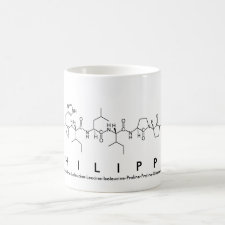
Authors: Claude B, Fayad S, Dufresne C, Chatellier C, Lestremau F, Rollin P, Morin P, Nehmé R
Article Title: Synthesis and Preliminary Assays of a Novel Molecularly Imprinted Polymer Dedicated to the Extraction of Carbamazepine from River Water.
Publication date: 2018
Journal: Chromatography and Spectroscopy Techniques
Volume: 1
Issue: (1)
Page numbers: 3-11.
Alternative URL: http://scholarlypages.org/Articles/chromatography-and-spectroscopy/cst-1-002.php?jid=chromatography-and-spectroscopy
Abstract: Monitoring of trace organic contaminants in aquatic media has become a major concern today. The presence of Carbamazepine (CBZ), anticonvulsant and analgesic used in the treatment of pain associated with trigeminal neuralgia, has been reported in effluents from sewage treatment plants due to its low biodegradability. To monitor its content in waters, a Molecularly Imprinted Polymer (MIP) of CBZ was synthesized to extract this molecule from river waters by Solid Phase Extraction (SPE). This MIP was prepared in dichloromethane with carbamazepine, 2-(trifluoromethyl) acrylic acid and divinyl-benzene as template, functional monomer and crosslinker, respectively. After synthesis, the template was completely removed by sonication. The selectivity between MIP and its related Non Imprinted Polymer (NIP) was greater than 2 and CBZ was completely recovered at the elution step regardless of the volume of sample loaded in the 1-100 mL range. The specificity of the material was evaluated by adding some Tricyclic Antidepressants (TCAs) to water samples containing CBZ. Analysis of these drugs was carried out by Capillary Electrophoresis (CE) after the introduction of a new developed background electrolyte. The results showed that TCAs exchanged strong specific and non-specific interactions with the polymer, which resulted in a decrease in elution yield of CBZ (64%).
Template and target information: carbamazepine, CBZ
Author keywords: molecularly imprinted polymer, Carbamazepine, Tricyclic antidepressants, TFMAA, Solid-phase extraction, capillary electrophoresis



Join the Society for Molecular Imprinting

New items RSS feed
Sign-up for e-mail updates:
Choose between receiving an occasional newsletter or more frequent e-mail alerts.
Click here to go to the sign-up page.
Is your name elemental or peptidic? Enter your name and find out by clicking either of the buttons below!
Other products you may like:
 MIPdatabase
MIPdatabase









